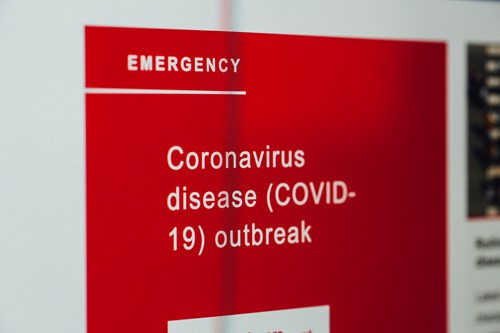The Centers for Medicare & Medicaid Services (CMS) said the new action will protect patients, providers, and health care workers in Medicare and Medicaid settings.

CMS, in collaboration with the Centers for Disease Control and Prevention (CDC), announced Thursday that emergency regulations requiring vaccinations for nursing home workers will be expanded to include hospitals, dialysis facilities, ambulatory surgical settings, and home health agencies, among others, as a condition for participating in the Medicare and Medicaid programs.
The decision, announced shortly before President Joe Biden delivered his plan to end the COVID-19 pandemic, is based on the continued and growing spread of the virus in health care settings, especially in parts of the country with higher incidence of COVID-19.
This means that all staff must receive COVID-19 vaccinations to protect both them and patients from the virus and its more contagious Delta variant. CMS urged facilities across the country to take steps to get health care staff vaccinated now to make sure they are in compliance when the rule takes effect. CMS is in the process of developing an interim final rule with comment period that will be issued in October.
"There is no higher priority for us than patient health and safety. As the Delta variant strengthens, the Biden-Harris Administration is committed to doing everything we can to keep patients, and those who care for them, safe,” U.S. Department of Health and Human Services (HHS) Secretary Xavier Becerra said in the announcement. “There is no question that staff, across any health care setting, who remain unvaccinated pose both direct and indirect threats to patient safety and population health. Ensuring safety and access to all patients, regardless of their entry point into the health care system, is essential.”
Nursing homes with an overall staff vaccination rate of 75 percent or lower experience higher rates of preventable COVID infection. In CMS' review of available data, the agency is seeing lower staff vaccination rates among hospital and End Stage Renal Disease (ESRD) facilities. To combat this issue, CMS is using its authority to establish vaccine requirements for all providers and suppliers that participate in the Medicare and Medicaid programs.
“We know that those working in health care want to do what is best for their patients in order to keep them safe,” said CMS Administrator Chiquita Brooks-LaSure. “As the Delta variant continues to spread, we know the best defense against it lies with the COVID-19 vaccine. Data show that the higher the level of vaccination rates among providers and staff, the lower the infection rate is among patients who are dependent upon them for care. Now is the time to act. I’m urging everyone, but especially those fighting this virus on the front lines, to get vaccinated and protect themselves, their families, and their patients from COVID-19.”
Biden announced late Thursday he will sign an executive order that imposes new vaccine rules for federal workers, large employers, and health care staff to stop the spread of COVID-19. The workers will have no option of being regularly tested to opt out. Furthermore, Biden will direct the Department of Labor's Occupational Safety and Health Administration (OSHA) to require all employers with 100 or more employees to ensure their workforce is fully vaccinated or require any workers who remain unvaccinated to produce a negative test result on at least a weekly basis before coming to work. OSHA will issue an Emergency Temporary Standard to implement this requirement, which will impact more than 80 million workers in private sector businesses with 100+ employees.
